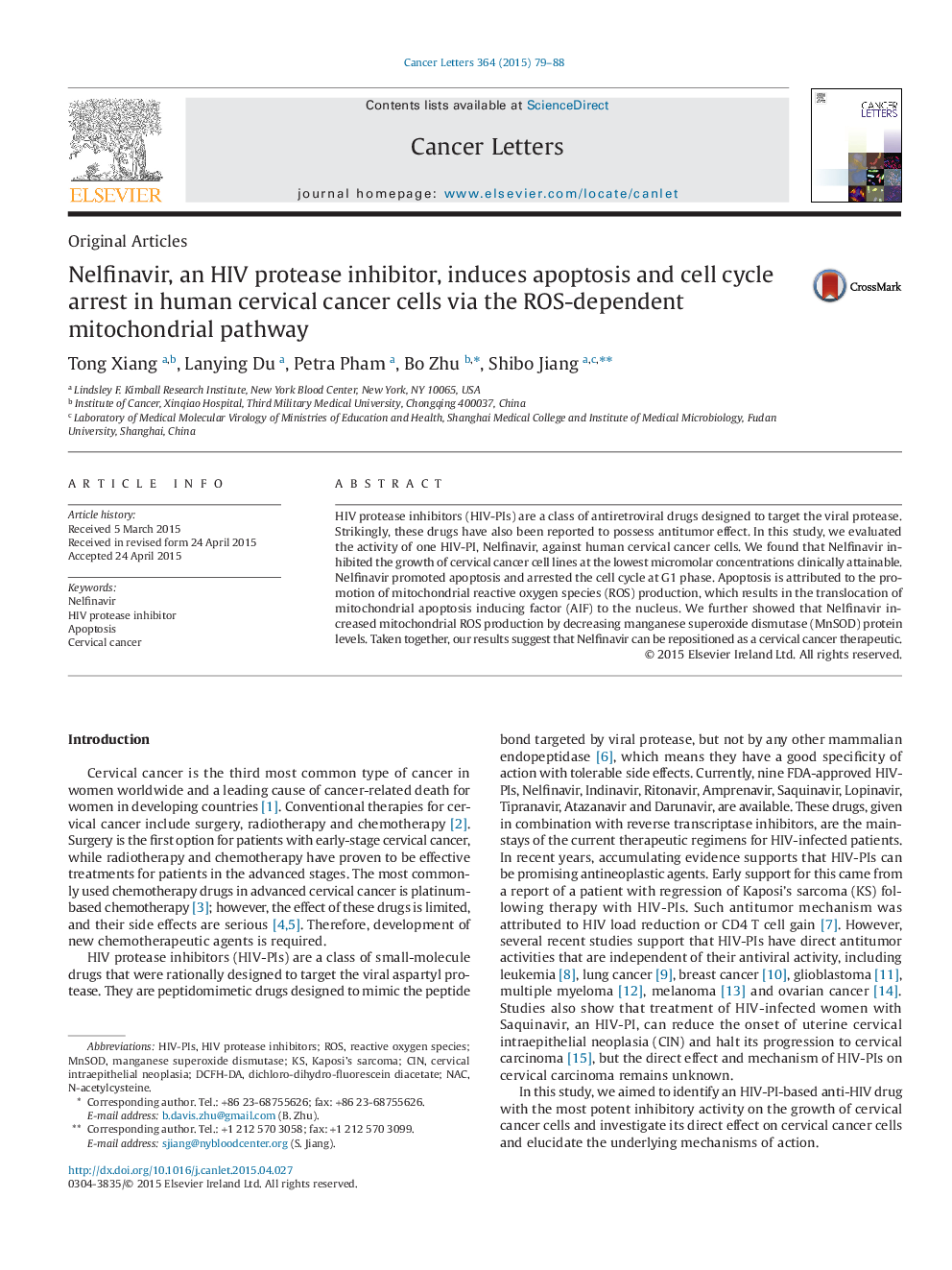| Article ID | Journal | Published Year | Pages | File Type |
|---|---|---|---|---|
| 2112434 | Cancer Letters | 2015 | 10 Pages |
•Nelfinavir inhibited the growth of cervical cancer cell lines at the lowest micromolar concentrations clinically attainable.•Nelfinavir induces cell apoptosis, cell cycle arrest and elevated mitochondrial ROS.•Mitochondrial ROS production may be accompanied by loss of mitochondrial transmembrane potential (ΔΨm) and AIF.•Nelfinavir decreased SOD-2 protein levels and enzyme activity.
HIV protease inhibitors (HIV-PIs) are a class of antiretroviral drugs designed to target the viral protease. Strikingly, these drugs have also been reported to possess antitumor effect. In this study, we evaluated the activity of one HIV-PI, Nelfinavir, against human cervical cancer cells. We found that Nelfinavir inhibited the growth of cervical cancer cell lines at the lowest micromolar concentrations clinically attainable. Nelfinavir promoted apoptosis and arrested the cell cycle at G1 phase. Apoptosis is attributed to the promotion of mitochondrial reactive oxygen species (ROS) production, which results in the translocation of mitochondrial apoptosis inducing factor (AIF) to the nucleus. We further showed that Nelfinavir increased mitochondrial ROS production by decreasing manganese superoxide dismutase (MnSOD) protein levels. Taken together, our results suggest that Nelfinavir can be repositioned as a cervical cancer therapeutic.
